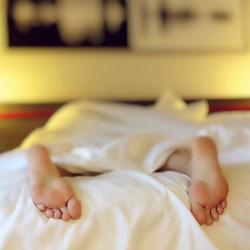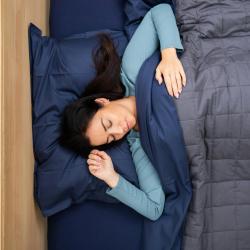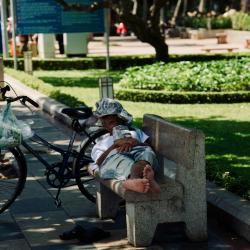The Role of Exercise in Sleep Quality
Sleep often becomes a low priority, overshadowed by work commitments, social obligations, and the pervasive influence of digital screens. However, the significance of quality sleep cannot be overstated, serving as a cornerstone for overall health and well-being. Among the myriad strategies proposed for enhancing sleep quality, exercise stands out as one of the most effective and natural methods.
The Connection Between Exercise and Sleep
Exercise and sleep are intrinsically linked, with a growing body of research underscoring the benefits of physical activity for better sleep. Engaging in regular exercise promotes more restorative and higher-quality sleep, helping individuals fall asleep faster and enjoy longer sleep durations. The improvements are attributed to the regulatory effects exercise has on the circadian rhythm, enhanced mood, and reductions in anxiety and depression levels.
The Impact on Sleep Stages
Numerous studies suggest that exercise promotes deeper and more restful sleep phases, notably slow-wave sleep, which is vital for physical recovery and memory consolidation. By increasing the body’s core temperature, physical activity prompts an auxiliary drop in temperature post-exercise, signaling the body to initiate sleep. This thermogenic regulation may be partly responsible for the improvements in sleep onset and quality.
Timing and Intensity Matter
While exercise is beneficial, the timing and intensity of workouts can influence sleep outcomes. Moderate aerobic exercises such as walking, biking, or swimming are generally conducive to better sleep when performed regularly. The prevailing view is to finish these exercises at least a few hours before bedtime to avoid any stimulatory effects that could hinder sleep onset.
On the other hand, high-intensity workouts or strenuous physical activities might lead to increased adrenaline levels and may not suit everyone, especially if performed too close to bedtime. However, for most individuals, the benefits of reduced sleep latency and enhanced sleep quality often outweigh potential drawbacks.
Exercise as a Tool Against Sleep Disorders
In tackling sleep disorders such as insomnia or sleep apnea, exercise has emerged as a promising intervention. For instance, aerobic exercise can reduce insomnia symptoms while resistance training can improve sleep patterns. Exercise helps regulate stress hormones, promoting relaxation and aiding those struggling with sleep disturbances.
Furthermore, weight management through exercise is beneficial for individuals with sleep apnea, as reducing body weight can significantly alleviate symptoms of this disorder. Regular physical activity aids in toning the muscles, which can reduce the severity of obstructive sleep apnea.
Psychological Benefits
Beyond the physiological advantages, exercise offers profound psychological benefits that contribute to better sleep. Physical activity releases endorphins and enhances brain chemicals like serotonin, combatting anxiety and depression — frequent culprits of sleep disturbances. By warding off negative thoughts and promoting a better mood, exercise can create a mental environment conducive to restful sleep.
Practical Recommendations
Though individual responses can vary, integrating exercise into daily routines is a generally advantageous method for improving sleep quality. Here are some practical tips:
-
Consistency: Aim for at least 150 minutes of moderate-intensity exercise each week, spread across multiple days.
-
Optimal Timing: Try to schedule workouts earlier in the day. Listen to your body to find the time that best suits your physiology.
-
Variety and Enjoyment: Choose physical activities you enjoy, whether it's yoga, cycling, or dancing, to maintain motivation and consistency.
-
Mind-Body Exercises: Practices such as yoga and tai chi involve relaxation components that directly enhance sleep quality.
In conclusion, exercise is a potent ally for promoting better sleep. By understanding how to harness its benefits effectively, individuals can not only improve sleep quality but also enhance their overall health and well-being. As the research continues to evolve, one clear message resonates: a lifestyle that includes regular physical activity is a prescription for better sleep and healthier living.





















